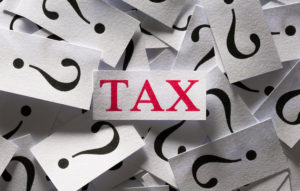House Tax Bill Comes Out of Committee
 The Senate on Thursday abandoned debate on their tax bill when it was clear that it would not get the votes necessary to pass. That bill, SB 147, would have raised about $280 million by raising income taxes on all Kansans. While it repealed the LLC tax loophole, it did not end the Brownback glide path to zero. The money raised in the bill would have resulted in the need to once again raise taxes later this year or immediately in 2018 and the continuation of the glide path would have put Kansas in the same budget crisis in the future.
The Senate on Thursday abandoned debate on their tax bill when it was clear that it would not get the votes necessary to pass. That bill, SB 147, would have raised about $280 million by raising income taxes on all Kansans. While it repealed the LLC tax loophole, it did not end the Brownback glide path to zero. The money raised in the bill would have resulted in the need to once again raise taxes later this year or immediately in 2018 and the continuation of the glide path would have put Kansas in the same budget crisis in the future.
Also on Thursday, moderate Republican and Democratic Senators handed leadership yet another defeat when they announced that they would not vote for SB 27, the cuts bill that would have reduced education funding by $154 million dollars in the current year.
Senate president Susan Wagle has been insisting that cuts were needed and that support for increased taxes must be concurrent with budget cuts the largest of which would be applied to K-12 public schools.
Over in the House, they are taking a radically different approach. Late yesterday the House Taxation Committee assembled and passed a comprehensive tax restructuring bill that goes a long way to restoring stability to the state’s revenue system.
Under the House plan, House Substitute for HB 2178, the glide path to zero income tax would be repealed as would the LLC loophole. The loophole would be repealed retroactively to all of 2017.
The House would restore the third income tax bracket set at 5.45% for those with an adjusted gross income of $50,000 or more filing as an individual and $100,000 for married couples filing jointly.
Income rates under the House plan for those married filing jointly would change as follows:
| Taxable income (AGI) | 1992-2012 | Current law (2017) | Sub for HB 2178 (2018) |
| $0-$30,000 | 3.5% | 2.7% | 2.7% |
| $30,001-$60,000 | 6.25% | 4.6% | 5.25% |
| $60,001-$100,000 | 6.25% | 4.6% | 5.25% |
| $100,0001 + | 6.45% | 4.6% | 5.45% |
The full deduction for medical expenses which was repealed in 2013 would be restored effective 2017.
This tax bill is estimated to raise an additional $590.2 million in fiscal year 2018.
The bill is a major step forward in the debate over tax policy under the dome.
Next week, the House Appropriations Committee will hold a hearing on HB 2161, a bill that would liquidate the pooled money investment portfolio putting about $317 million in the treasury. The portfolio would then be paid back at about $45 million per year for seven years. This action would likely create enough one-time money to plug the hole in the current year budget. It would, however create a seven year obligation. KNEA believes that this is the best way to get out of 2017 without cutting state services but must be done in conjunction with a comprehensive tax fix that provides for state services and allows the new obligation to be paid.


